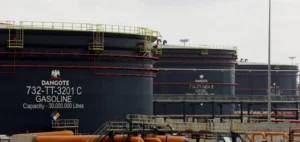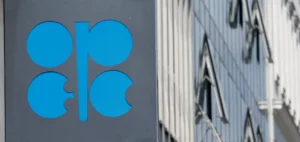Russia’s crude oil exports fell significantly in May, reaching their lowest level for six months. According to tanker tracking data from S&P Global Commodities at Sea, crude oil shipments from Russian ports averaged 3.52 million barrels per day (b/d) in May, down 390,000 b/d. compared with 3.91 million b/d in April. This fall was mainly due to a reduction in Urals crude cargoes from the Baltic and Black Sea ports of Primorsk and Novorossiisk. May’s exports, in line with the 3.5 million b/d average seen over the past year, come as Russian refiners repaired some damaged capacity despite ongoing Ukrainian drone attacks. As part of its commitments to OPEC+, Russia has promised to convert its voluntary crude oil supply cut into a crude oil production cut in the third quarter.
India, number one buyer, reduces imports
The biggest drop in crude oil exports came from India, the data show, with a contraction of almost 700,000 b/d in one month, to 1.61 million b/d in May, a three-month low. In April, Russian crude oil exports to India had surged to a record 2.1 million b/d, the highest since India became the largest buyer of Russian oil following the war in Ukraine. The jump followed an apparent resolution of a foreign currency payment dispute with Moscow and Russia’s efforts to circumvent sanctions on its oil exports, which had previously seen Indian refiners shun Russia’s Sovcomflot tanker fleet. As the world’s third largest consumer of crude oil, with a heavy dependence on imports, Indian refineries are also sensitive to oil prices.
China also reduces its purchases of Russian crude
Crude oil exports to China, Russia’s second largest crude oil buyer, fell by around 100,000 b/d in one month to 1.13 million b/d, as Chinese refiners continued to undergo seasonal maintenance. This pushed the total shutdown in Asia to 2.72 million b/d in the week ending May 24, according to Commodity Insights. However, Russian exports of petroleum products rose slightly in May, thanks to a resumption of gasoline shipments after Moscow suspended a temporary export ban. Seaborne export cargoes of Russian diesel, fuel oil, naphtha and other refined products averaged 2.13 million b/d, the data show, up 3% in a month, but still around 500,000 b/d below January levels, when Ukraine began a series of long-range drone strikes on Russian refining capacity. Currently, four refineries in Russia are partially or totally inoperative due to drone attacks, totaling a loss of around 455,000 b/d of crude oil distillation unit capacity, according to Commodity Insights estimates. In March, up to seven Russian refineries were partially out of service due to damage caused by Ukrainian drone attacks, resulting in a loss of capacity of over 1 million b/d. Russia’s biggest fuel exports – diesel and gasoil – averaged 810,000 b/d in May, up slightly on April’s 805,000 b/d, but still close to six-month lows, the data show. However, the drop in Russia’s oil product exports in April was mainly due to heavy fuel oil, which fell by 147,000 b/d in one month and 220,000 b/d since January. Russian exports of crude oil and petroleum products thus showed contrasting trends in May. While crude oil shipments fell to a six-month low, dragged down by reduced purchases from India and China, refined product exports rebounded slightly thanks to a recovery in gasoline flows. But they are still penalized by the damage inflicted on Russian refineries by Ukrainian drone attacks since the beginning of the year. Russia has to cope with these logistical disruptions in a context where it has committed to OPEC+ to transform its voluntary export cuts into production cuts from the third quarter onwards.






















